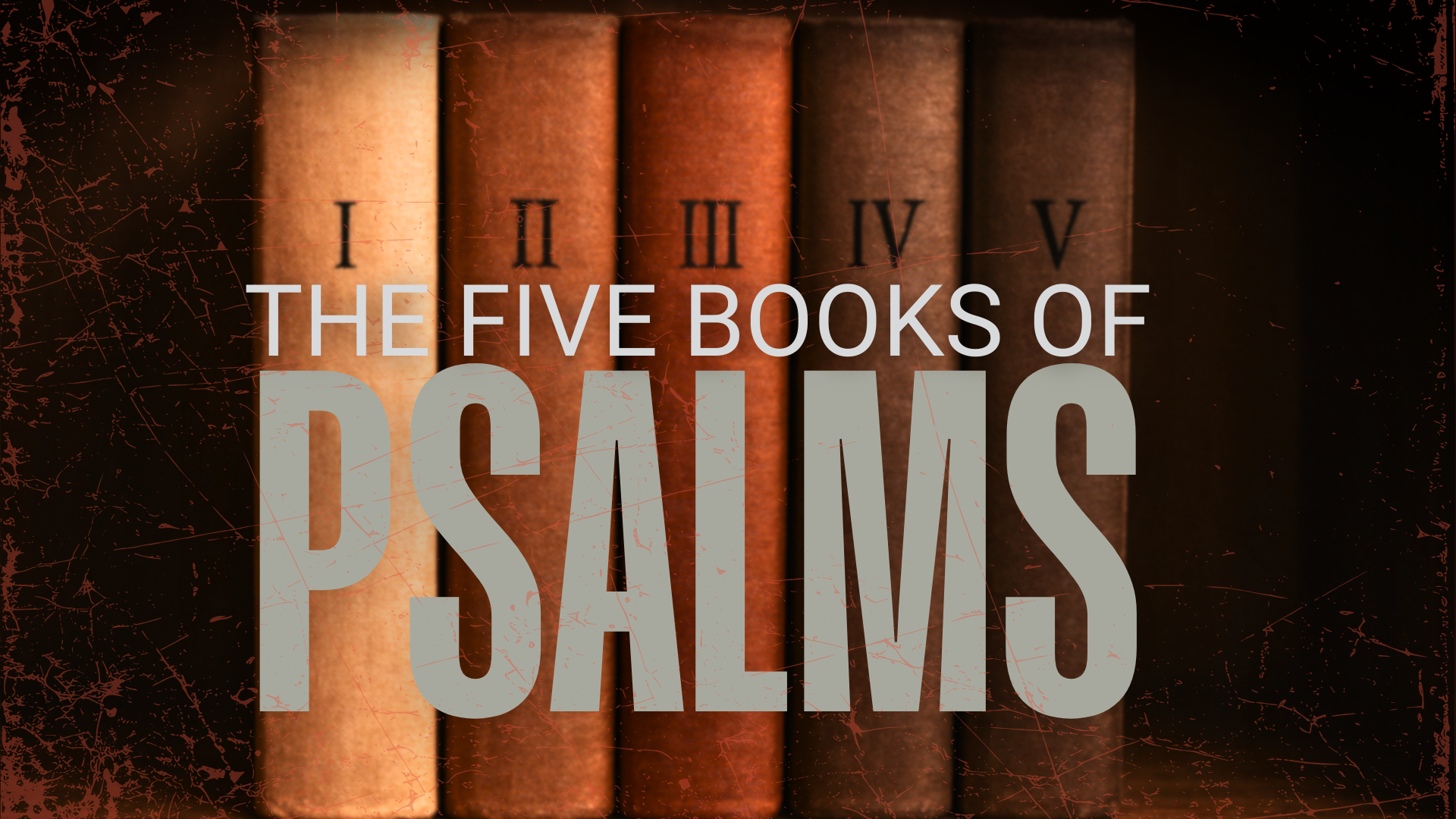Psalms | A survey through the five books
Psalms Overview
The Book of Psalms is one of the most beloved and important books in the Hebrew Bible and Christian Old Testament. It consists of 150 individual poems, songs, and prayers, which express a wide range of human emotions, from deep sorrow and lament to ecstatic praise and thanksgiving. Psalms are often seen as the prayer book of the Bible, used for both personal devotion and public worship.
1. Authorship
The Psalms are traditionally attributed to various authors, with King David being the most prominent. He is believed to have written 73 of the Psalms, though other authors include Asaph, the sons of Korah, Solomon, and others.
Some Psalms have an unknown or anonymous author, and there are also psalms attributed to figures like Ethan the Ezrahite and Heman the Ezrahite.
Date: The Psalms were written over a long period, from the time of King David (around 1000 BCE) to the post-exilic period (around 400 BCE).
2. Structure
The Book of Psalms is divided into five sections or "books" (Psalms 1–41, 42–72, 73–89, 90–106, 107–150). These divisions may reflect the five books of the Torah (Genesis, Exodus, Leviticus, Numbers, Deuteronomy) and may have been a way to organize the Psalms for liturgical use.
Each of the five sections ends with a doxology (a brief hymn of praise), and the entire book concludes with a grand doxology in Psalm 150.
3. Themes
The Psalms cover a vast range of themes, reflecting the full spectrum of human experience in relation to God. Some of the major themes include:
Praise and Worship: Many Psalms are expressions of praise for God’s greatness, beauty, majesty, and power. These psalms often focus on God’s creation, holiness, and faithfulness. Example: Psalm 145.
Lament: A significant portion of the Psalms are laments, where the psalmist expresses sorrow, grief, or distress. These psalms may call out to God for help in times of personal trouble, illness, or national crisis. Example: Psalm 42 or Psalm 22 (which is famously quoted by Jesus on the cross).
Thanksgiving: Many psalms express gratitude for God’s deliverance, provision, and protection. These psalms can be personal or communal, and they focus on remembering God’s good deeds. Example: Psalm 100.
Royal Psalms: Some Psalms focus on the king of Israel, celebrating the king’s role in the kingdom and praying for his success and protection. These psalms also point to the ideal king, who would be a symbol of God’s reign. Example: Psalm 2 or Psalm 110.
Wisdom and Instruction: A number of psalms contain reflections on the nature of life, righteousness, and the fear of the Lord, often resembling wisdom literature like Proverbs. Example: Psalm 1.
Trust in God: Many psalms express a deep trust in God’s protection and sovereignty, even in difficult circumstances. Example: Psalm 23.
Imprecation: Some psalms include prayers for judgment or curses on enemies. While these can seem harsh, they reflect the psalmists' desire for justice and God’s intervention. Example: Psalm 109.
Messianic Psalms: These psalms foreshadow the coming of a Messiah, the Anointed One, and are often interpreted as pointing to the life and work of Jesus Christ in Christian theology. Examples: Psalm 2, Psalm 22, and Psalm 110.
4. Types of Psalms
The Psalms can be grouped into several types based on their literary form and purpose:
Hymns of Praise: These psalms celebrate God's nature, attributes, and works. Example: Psalm 145.
Laments: These psalms express sorrow, pleading with God for deliverance or help. They can be individual or communal. Example: Psalm 6 (individual) and Psalm 44 (communal).
Thanksgiving Psalms: These focus on expressing gratitude to God for His deliverance or blessings. Example: Psalm 30.
Wisdom Psalms: These reflect on life, morality, and the fear of God. Example: Psalm 1.
Imprecatory Psalms: These psalms ask God to bring judgment or punishment upon enemies. Example: Psalm 109.
Royal Psalms: These focus on the king and his reign. They often celebrate God's choice of the king and the king's role in bringing justice and peace. Example: Psalm 2.
Zion Psalms: These celebrate the city of Jerusalem, its temple, and God’s presence there. Example: Psalm 48.
5. The Psalms and Jesus
The Psalms hold a special place in Christian theology because they are seen as prophetic and often cited by Jesus in the New Testament. Many of the Psalms are believed to foreshadow the suffering, death, and resurrection of Jesus. Psalm 22, for example, is directly quoted by Jesus on the cross when he says, “My God, my God, why have you forsaken me?” (Matthew 27:46).
Messianic Prophecies: Psalms such as Psalm 2, Psalm 16, and Psalm 110 are interpreted in the New Testament as being messianic, pointing to the reign and work of Jesus Christ.
The Book of Psalms is a treasure trove of prayers, songs, and hymns that speak to the deepest aspects of the human experience. It is both a book of personal devotion and communal worship, offering a model for how to approach God in every circumstance, whether in joy or sorrow, triumph or struggle. Its themes of trust, lament, praise, and thanksgiving continue to resonate deeply with people of faith today.


